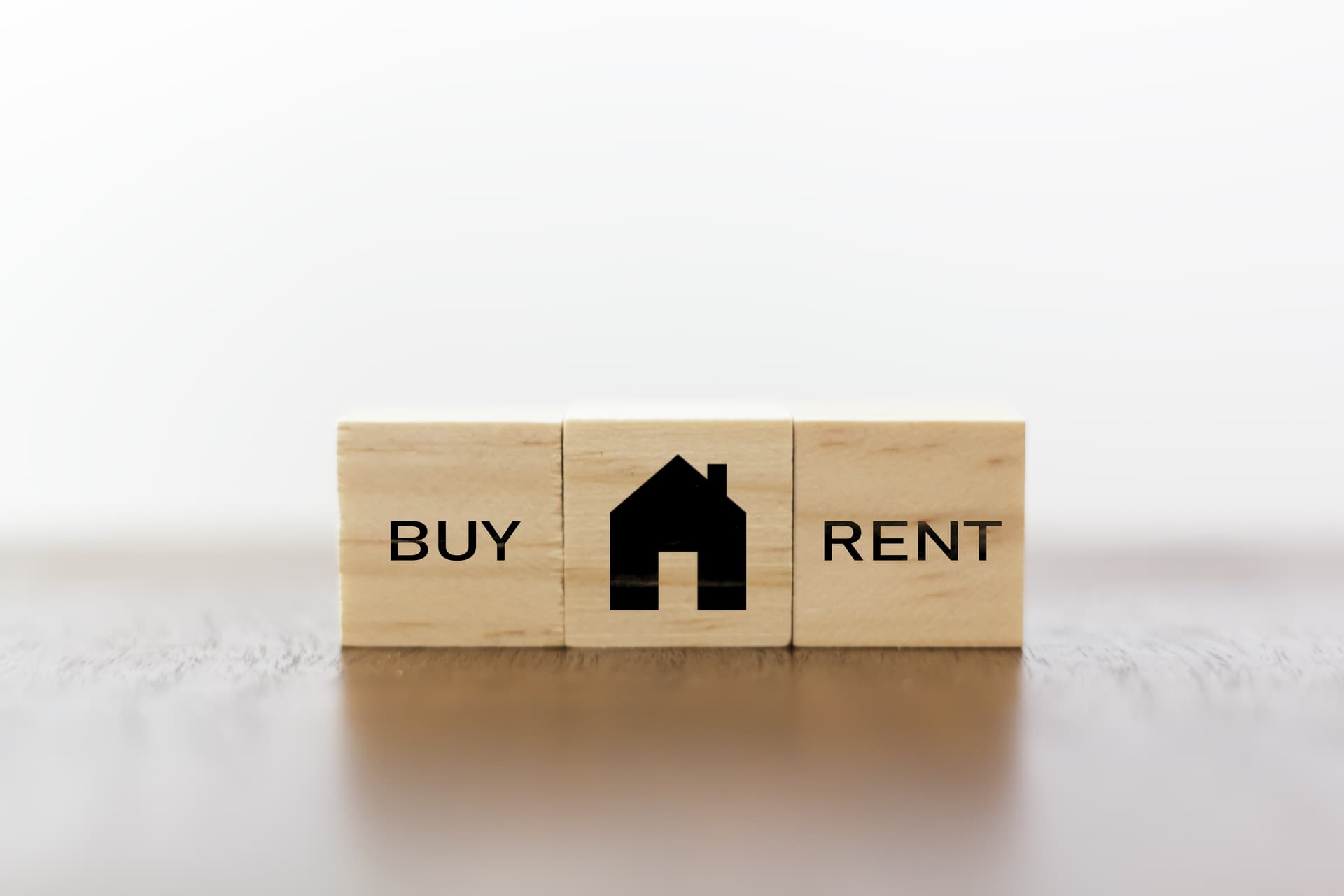Prices versus Rents

The gap between residential property prices and rents keeps widening. While prices for detached homes and condominiums are climbing steadily, rent rates are flatlining.
Rising Price-to-Rent Ratio
One of the factors that have fuelled the real estate boom is COVID-19: Dr. Bernd Leutner, the managing director of the F+B research institute in Hamburg, explained how the pandemic has redirected demand from the rental toward the homeownership segment. The shift is driven in particular by private investments in the countryside, where homeownership close to nature promises respite from the pandemic. Accordingly, the F+B Housing Index Germany quotes a year-on-year increase by 4.3 % for the nationwide average in the price and rental growth of residential real estate. Rent rates, by contrast, have stagnated lately. The growth rate of asking rents declined by -0.3 % year on year during the first quarter. Another measure to assess the relationship between the two figures is the price-to-rent ratio. It specifies the multiples of the annual basic rent that determine the selling price of a given property. In other words: The outcome answers the question how many years it would take a given property to pay for itself. According to the Postbank Housing Atlas, which is a multi-part survey published annually, the ratio averaged 25.7 times the annual basic rent in 2020, which is 1.7 % more than the year before. Whenever rents are low, the price-to-rent ratio will go up, meaning that it will take buyers and investors much longer to earn returns. Striking to note is the development in Berlin. Here, the price-to-rent ratio climbed from 30.8 to 39.7 between 2017 and 2020. The ratio in the surrounding suburban districts is much lower.
Germany’s Top-50 Cities – Students Not Flying the Nest
According to F+B, new-tenancy rents declined quarter on quarter in more than one third of Germany’s 50 priciest cities. The research institute ran a comparison with the prior-year quarter and found that rents in half of the cities had softened in real money terms. In regard to the campus towns of Freiburg, Heidelberg, Tübingen and Konstanz, the researchers concluded that modest demand on the student side has played a significant role here. Due to the pandemic, classes are taught online, eliminating any immediate need for students to move out of their parental homes. In order to create incentives for moving out nonetheless, some providers lowered their asking rents during the first quarter of 2021. Particularly hard hit are the “serviced apartments” and accommodations of the micro-living type.
Consumer Price Index Rises while Rents are Barely Moving
While asking rents have softened, F+B registered a growth of 1.2 % over prior-year quarter for passing rents. They continued to increase by 0.3 % since the beginning of the first quarter. Nonetheless, experts believe that rents have ceased to act as price drivers. Their assessment has to do with the consumer price index (CPI). During the twelve-month period of March 2020 through March 2021, the CPI gained by 1.7 %. This means that the trend in passing rents and asking rents moves at a rate well below the index trend.
Buying No Longer a Paying Proposition?
If rents are outpaced by property prices, the question presents itself whether buying a condominium for owner-occupancy or as buy-to-let investment is still a good idea. The German Economic Institute (IW), working together with ACCENTRO, took a hard look at the situation and just presented their findings in the latest ACCENTRO Housing Cost Report. Here is what they found: Buying is still more affordable than renting in 399 of Germany’s 401 rural districts and urban districts. The national average suggests a cost advantage of actually 56 percent, and even in the high-priced metropolises, the cost advantage well exceeds 40 percent. This is explained by the low level of interest rates above all. The bottom line being that homeownership continues to be affordable, and that the use of leverage through low-cost financing arrangements ensures that even the letting business remains attractive.